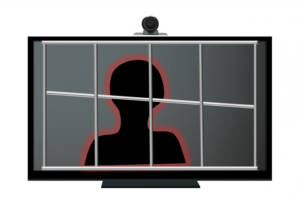Correctional Telepsychiatry: A Good Fit
 Jails and prisons can be bleak and austere places to work. The steel bars and concrete walls deliver a cold feel. Survival is a constant theme for patients and staff alike. Feelings of hopelessness can dominate and an authoritarian vibe can overwhelm. Working inside the jail or prison walls, one cannot help but feel the pull of this culture. Staff may become more cynical. To a certain extent, this culture will shape the way staff relate to the correctional officers and patients. Consciously or subconsciously, psychiatrists might feel compelled by their environment to be more punitive and harsh in their dealings with inmates.
Jails and prisons can be bleak and austere places to work. The steel bars and concrete walls deliver a cold feel. Survival is a constant theme for patients and staff alike. Feelings of hopelessness can dominate and an authoritarian vibe can overwhelm. Working inside the jail or prison walls, one cannot help but feel the pull of this culture. Staff may become more cynical. To a certain extent, this culture will shape the way staff relate to the correctional officers and patients. Consciously or subconsciously, psychiatrists might feel compelled by their environment to be more punitive and harsh in their dealings with inmates.
These feelings may be heightened when working in an especially harsh correctional environment like maximum security units. In these units, the inmates can be more dangerous and under much stricter control. Also, the staff must comply with more safety protocols such as wearing stab-proof vests, alarms, and facemasks. In some cases, it might make the staff feel that they are going to war, rather than treating patients. This may bring out more aggressive and hostile feelings which can possibly spill into the dynamics of the treatment session.
Safety protocols may intimidate staff and make them feel more vulnerable. To some staff, wearing vests, alarms, and facemasks engenders a feeling of vulnerability- as if to say that they are scared of the patient. This gives an inmate the opportunity to take advantage by trying to pressure the doctor into inappropriate treatment such as abusable medications.
Also, custody staff sometimes resent the role of healthcare staff or do not support the mission of providing healthcare to inmates. Custody staff sometimes give healthcare staff pejorative labels such as “Care Bears” or “Hug-a-thugs.”
Telepsychiatrists, in contrast, are less likely to succumb to the authoritarian culture because they are not as entrenched in it. Telemedicine providers do not have the heavy restrictions on what to wear and what to bring to the office. They are not as affected by the local mood in the institution. They are less worried about what the custody officer may think of them or of office politics. They are virtually completely out of danger and have no fears for their safety or retaliation. Therefore, they are better able to focus on the task at hand.
Likewise, an inmate may be more apt to trust a telepsychiatrist who is not beholden to the pressures of the authoritarian culture. Inmates might feel more comfortable sharing thoughts and feelings with a doctor that is not directly connected with the local prison.
In addition, the work environment for a Telepsychiatrist (sometimes their own home office) tends to be brighter, cleaner, and more comfortable than that of a psychiatrist working within the prison walls. Studies have shown that a person’s work environment significantly affects the quality of the work experience. Therefore, telepsychiatrists working in a comfortable environment might tend to have a more positive and hopeful outlook. They may be more likely to keep their cool when confronted with unique issues related to prisons and jails. This positive attitude will likely translate to more effective patient care for inmate-patients who often desperately need psychiatric help.
Telemedicine is a good fit for correctional environments. If you want to know how your prison or jail can obtain telepsychiatry services, contact Orbit Health today
